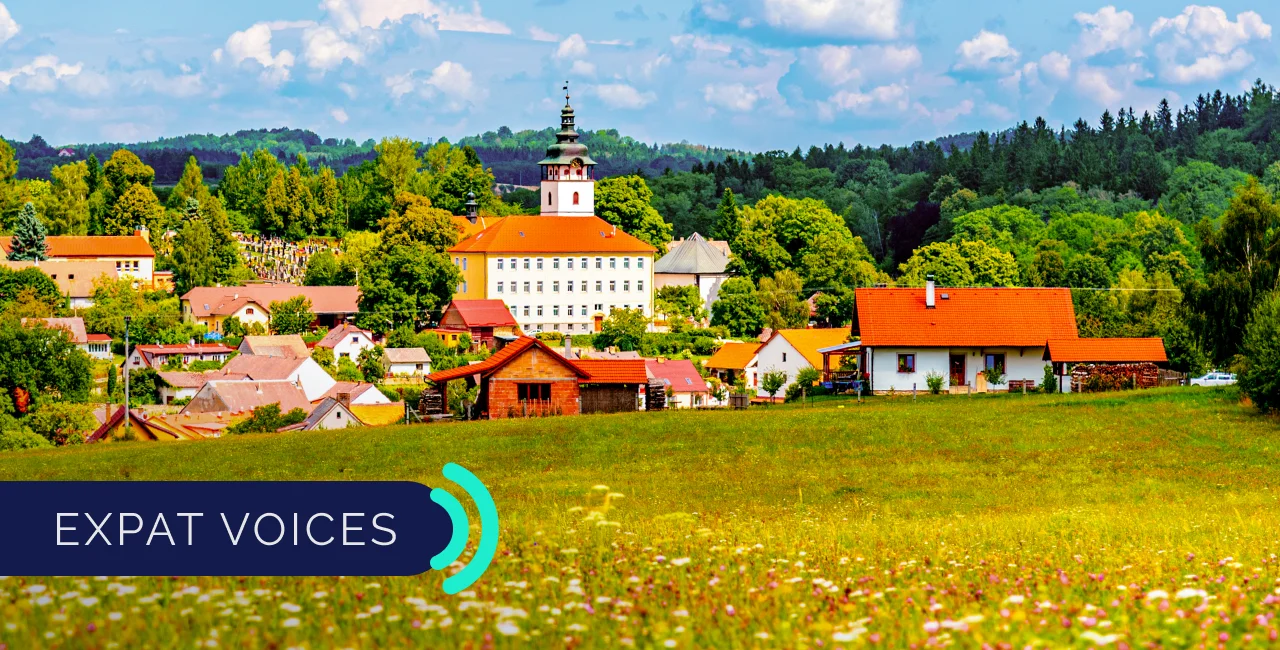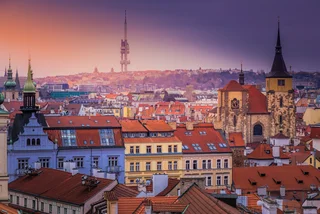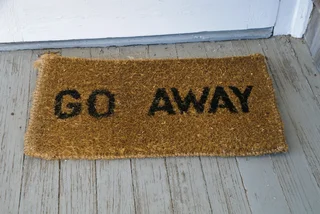A few weeks ago, we asked those of you not living in a large Czech city – a minority of expats, but still a solid proportion – to give your candid thoughts on living in the Czech countryside.
We wanted to find out the good, bad, and ugly of living in Czech villages, from the ease of communicating with locals and housing costs to accessibility and raising children in rural areas. Many of you responded, giving a range of positive and not-so-pleasant stories of being based away from a major Czech city. Here’s what you had to say.
PARTNER ARTICLE
Answers have been edited for length and clarity.
What readers like about living in a Czech village
People who praised Czech villages most often pointed towards their tranquility, nature, safety, and community feel.
One reader, who has lived in Brno-venkov near Czechia’s second-largest city for five years, praised their area for its “community, free sports facilities, access to nature, cultural events,” and the fact that “you can leave your door unlocked and children can play alone in the street.”
Another person who lived in Vysoký Újezd, a village in Central Bohemia, for a decade wrote that the best part was “the nature all around, a quiet place to live and work, a great network of quiet roads for cycling, and – more recently – a big influx of foreigners and natives who speak good English.”
Expats.cz reader living in a village north-west of Prague"I feel a sense of relief every time I come home from a trip to the city and feel the peace and quiet of the countryside. Some people keep chickens, goats, sheep, and sometimes other unexpected animals. It’s great for little kids to grow up close to nature.”
Another reader who lives in a village by the Vysočina region of Havlíčkův Brod simply noted the benefits of “clean air, no transport issues, and cheaper housing.”
A resident of Slaný in Central Bohemia since 2008 wrote that they find it quicker to make friends with Czechs in the countryside, that “everything you need is in the village, there are no parking problems, and going to the pub is cheaper.”
The challenges of being a Czech village resident
Expats.cz readers most frequently said that language barriers, transport, and facilities are being the biggest downfalls.
“Interaction with people is the greatest challenge, mainly because Czech is a very difficult language. I haven’t felt much warmth or curiosity from my neighbors. Those who can speak English seldom make the effort,” said one reader living in a village north-west of Prague.
“Over the five years I've been here, I could count on one hand (or perhaps both) how many times I've heard English randomly spoken. That makes finding work an issue,” said a person living in a village near the Moravian-Silesian town of Karviná.
Similarly, a resident of Lysá nad Labem in Central Bohemia told us: “The people are very suspicious of a foreigner living in their town. None of my neighbors – apart from one – even acknowledge me if they see me in the street.”
Unsurprisingly, several readers also pointed out that amenities are not on one’s doorstep, unlike in a large city. A resident of Průhonice on the outskirts of southeast Prague said that finding “a doctor for a child, dentists, and adequate food delivery” were tricky aspects of living in the area.
Expats.cz reader living in Vysoký Újezd (Central Bohemia)“The infrastructure is woefully underprepared for the rapid influx of new residents and houses. This includes schools, medical services, roads, dining, and recreation facilities.”
Other readers commented on the irregularity of bus services and the lack of broader cultural events. One person living near the Karlovy Vary town of Cheb for over a year complained that “services are limited and things close so early.”
How do costs and quality of life compare to a big Czech city?
Most respondents said that housing costs are significantly cheaper than in large cities and that the quality of life is – on the whole – better. However, some noted that living costs have increased noticeably in recent years.
“The price for a small rental apartment in Prague allows you to buy a house in a village and save money,” said a reader living Úštěk, Ústí nad Labem. “We bought a detached house for the price of a flat in the city,” said another person.
A former resident from near the town of Rajhrad in the Brno-Country district said their rent was about CZK 5,000 cheaper than Prague's.
Not everyone has sung praises for the house prices, though. “It’s cheaper overall, but the price of property in the countryside is wildly overpriced,” said a Lysá nad Labem resident.
Expats.cz reader living in a Central Bohemian village“Moving to a village used to be cheaper, but land and property prices are insane lately.”
A reader from the Kostelec u Křížků village in the Prague-East region told us they thought that prices are “about the same in supermarkets, but pubs are cheaper.”
“Having a house with a garden greatly improves your quality of life if you have young children,” said a reader living in Středokluky, in the Prague-West region.
Other readers commended the slower pace of life, although some noted that money saved on property ended up being spent on travel: “We could afford a much larger property with a garden than in the city; however, we needed to buy a second car due to the limited public transport. The commute is also longer, so the costs are probably similar,” aptly surmised one reader from a Central Bohemian village.
Would people recommend moving out of Prague as an expat?
This question got mixed responses – ultimately, readers suggested that it was down to your priorities and preferences. Children, too, were a big factor.
“I would recommend living in the countryside if you speak some Czech (at least A2 level) or are willing to learn,” said someone who lives in a small village 20 minutes north of Prague. “Living in a village has been great for me, but you have to try to engage with the locals and improve your Czech. You can't live in an expat bubble like you can in the city,” said another villager.
Expats.cz reader formerly living in a village near Brno“Honestly, I wouldn’t recommend living in a village. Nearly every expat I met in a village struggles with life - they don't feel like they fit in or feel part of the fabric of the place. I now live in a town close to Prague, and although it's out of the city, you still feel connected, and there are many foreigners around.”
One reader based in Roztoky, Prague-West, said living in a village was superior for a family with small kids. “I feel safe when my kids walk from school or play close to the house, but I'm sure I would be nervous in a big city,” they commented.
However, they also note the struggles of finding school spaces: “Every family with kids struggles with sending them out to the big city gymnasiums and high schools as well as some after-school activities, which villages simply lack.”
Our survey shows that living in a Czech village brings with it good sides and bad – much like living in any major Czech city. While villages generally offer lower costs, nature, tranquility, and more safety, issues with communication, transport, and occasional boredom are setbacks to the quiet, countryside life.












 Reading time: 6 minutes
Reading time: 6 minutes 
























